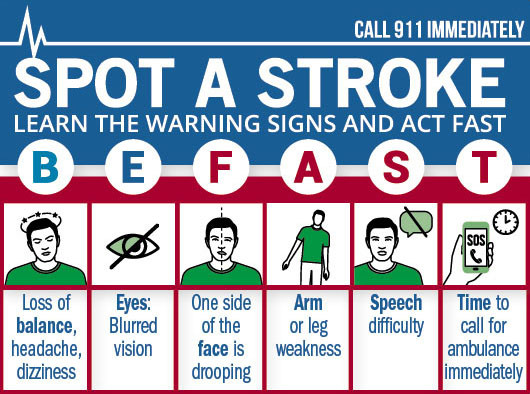Children of divorced parents are substantially more likely to have a stroke later in life, according to a new study of more than 13,000 older adults in the US.
The findings suggest that emotional turmoil during a person’s formative years may have lifelong health effects that we could be missing.
“It is extremely concerning that older adults who grew up in divorced families had 60 percent higher odds of stroke, even after excluding those who had been physically or sexually abused as children,” says social scientist Esme Fuller-Thomson from the University of Toronto in Canada.
“The magnitude of the association between parental divorce and stroke was comparable to well-established risk factors for stroke such as male gender and having diabetes.”
Previously, research has linked physical and sexual abuse during childhood to a higher risk of stroke later in life. Divorce is another form of emotional stress in a person’s early years that could feasibly impact long-term cardiovascular health.
Fuller-Thomson and her team say they are the first to explore that possibility.
Their research is based on the personal and health data of 13,205 adults over the age of 65, who did not report experiencing physical or sexual abuse in childhood. Roughly 14 percent had experienced parental divorce before they were 18 years of age.
Males in the study faced a 47 percent higher likelihood of having a stroke than females. As both sexes aged, however, their risk for stroke increased.
Participants in the study with diabetes had a 37 percent higher chance of having a stroke, whereas those with depression had a 76 percent higher chance.
Even when these other risk factors were taken into account, however, people whose parents had gone through a divorce while they were a child were still 61 percent more likely to suffer a stroke.
“No association was found between childhood emotional abuse, parental domestic violence, parental incarceration, parental mental illness, or parental substance use and stroke risk, once a wide range of sociodemographic factors were taken into account,” writes the team of researchers.

The results are only observational, so they can’t explain why childhood divorce is linked to a person’s stroke risk later in life. But Fuller-Thomson and her team have a few hypotheses that they say warrant future research.
Prolonged stress during childhood, for instance, could be responsible for poor health outcomes. Divorce can often lead to fighting and tension in the household, and the child may sometimes have to move schools or live in more than one place. Previous studies suggest that childhood misfortune and adversity, more generally, can impact the risk of stroke later in life.
High blood pressure could also be a contributor. In 2022, a study found parental separation before age 10 is associated with higher rates of hypertension in middle age, and this can also increase the risk of stroke.
In addition, sleep disruptions are common among children of divorced parents, and if those disorders persist into adulthood, they could increase the risk of stroke as well.
“Due to the changes in societal norms, it is not clear that Gen X or Millennial Americans will experience a similar link between parental divorce and stroke as was evident in our sample from the Baby Boom and Silent Generation cohorts,” the authors write.
“Future research is needed to investigate generational differences in the parental divorce-stroke association.”
The study was published in PLOS ONE.





